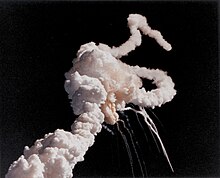The subject of ethics has recently come up in this forum, I'd like to expand on that.
I'll start with engineering ethics and whistleblowing.
Wikipedia has a good and comprehensive article on it, here are tiny excerpts:
http://en.wikipedia.org/wiki/Engineering_ethicsEngineering ethics is the field of applied ethics and system of moral principles that apply to the practice of engineering. The field examines and sets the obligations by engineers to society, to their clients, and to the profession. As a scholarly discipline, it is closely related to subjects such as the philosophy of science, the philosophy of engineering, and the ethics of technology.
<snip>
Whistleblowing

The Space Shuttle Challenger disaster is used as a case study of whistleblowing and organizational behavior including groupthink. Main article: Whistleblower
A basic ethical dilemma is that an engineer has the duty to report to the appropriate authority a possible risk to others from a client or employer failing to follow the engineer's directions. According to first principles, this duty overrides the duty to a client and/or employer.<24> An engineer may be disciplined, or have their license revoked, even if the failure to report such a danger does not result in the loss of life or health.<25>
In many cases, this duty can be discharged by advising the client of the consequences in a forthright matter, and ensuring the client takes the engineer's advice. However, the engineer must ensure that the remedial steps are taken and, if they are not, the situation must be reported to the appropriate authority.<26> In very rare cases, where even a governmental authority may not take appropriate action, the engineer can only discharge the duty by making the situation public.<27> As a result, whistleblowing by professional engineers is not an unusual event, and courts have often sided with engineers in such cases, overruling duties to employers and confidentiality considerations that otherwise would have prevented the engineer from speaking out.<28>
<snip>